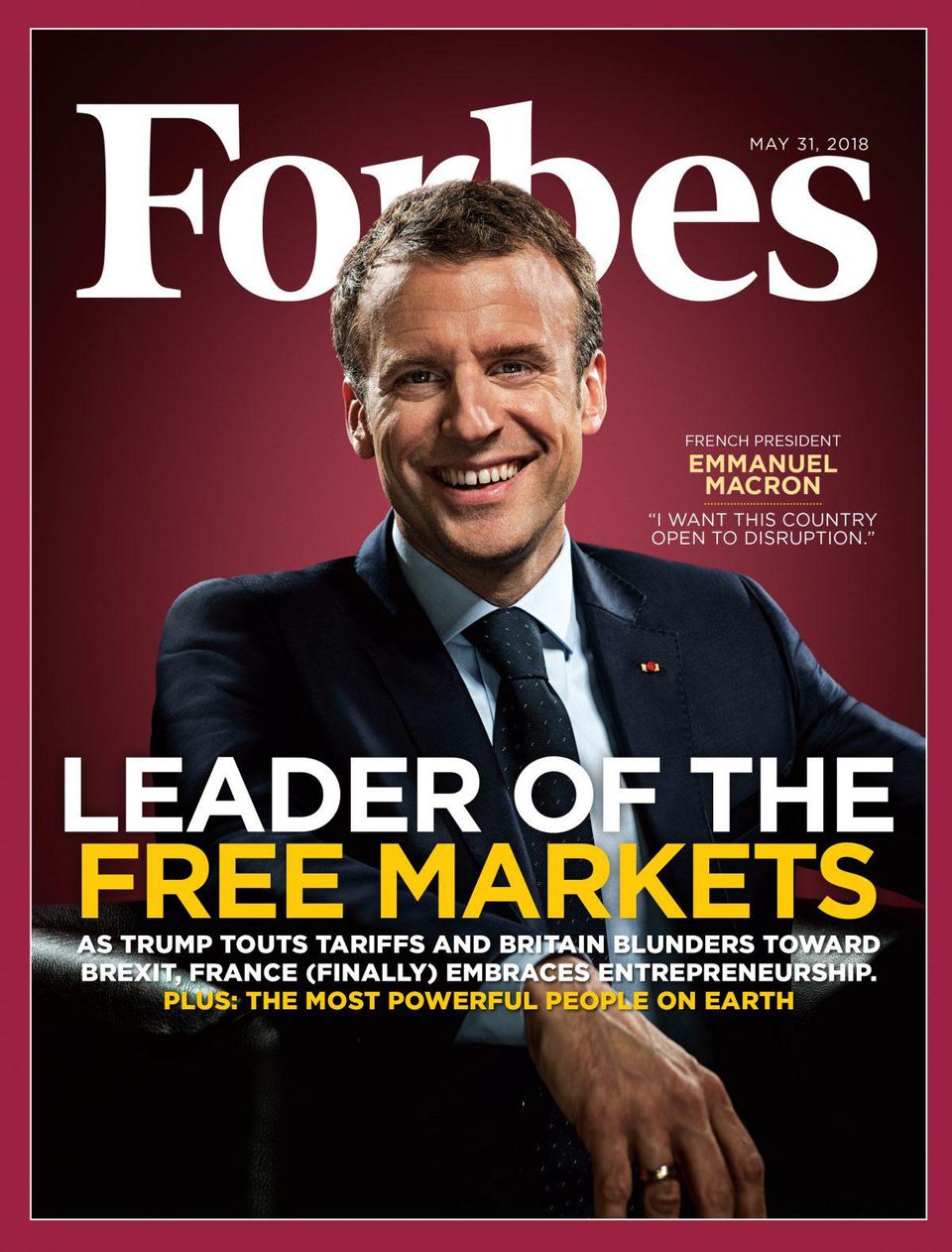 The latest Forbes cover story highlights France’s recent political turn toward market-oriented President Emmanuel Macron.
The latest Forbes cover story highlights France’s recent political turn toward market-oriented President Emmanuel Macron.
Using executive orders, he’s quickly pushed through a raft of new employment laws, making it easier to hire—and fire. To add some honey to the medicine, he’s also put $18 billion into professional retraining over the next five years, including a controversial extension of unemployment insurance for France’s growing number of self-employed and small business owners. He’s slashing at taxes on wealth, capital gains and worker compensation, and “simplifying everything.”
How far is Macron willing to go? He reveals to Forbes that next year he intends to permanently end France’s notorious 30% “exit tax” on entrepreneurs who try to take money out of France—a tremendous disincentive for foreigners to start a business there and a strong incentive for French citizens to launch elsewhere. In doing so, he’s moving in the opposite direction of President Trump, who has gleefully threatened American companies who expand abroad and promised subsidies for those who stay.
“People are free to invest where they want,” says Macron. “If you want to get married, you should not explain to your partner, ‘If you marry me, you will not be free to divorce.’ I’m not so sure it is the best way to have a lady or a man who loves. So I’m for being free to get married and free to divorce.” …
… Macronomics is already having an impact. As soon as his labor reforms passed in January, the French retail giant Carrefour and the carmaker Groupe PSA announced 4,600 job cuts. Strikes ensued, naturellement. But in the same time period, foreign entities announced up to $12.2 billion in new investments, Macron’s economic advisors say. Disney is budgeting $2.4 billion to expand Disneyland Paris; Germany’s SAP is putting $2.4 billion into R&D centers and startup accelerators; Facebook and Google are scouring the French capital to hire 150 new specialists in artificial intelligence.


